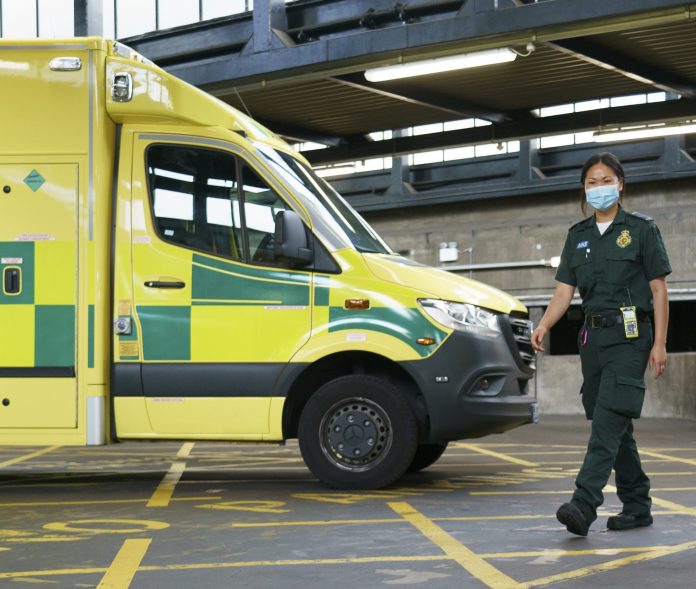Ambulance worker
I currently work full-time as a paramedic for one of the biggest NHS trusts. I’m proud to say I started out in the ambulance service cleaning and preparing frontline vehicles going out on the road to help save lives. I realised that this could be my dream job; mixing with frontline crews who encouraged me to believe I could do it. Though they did assure me that “it’s not all the job you may think it is”. I do recall some paramedics, unhappy in their work, leaving the role, which confused me. But I excitedly exchanged my blue ambulance uniform for a green one.
I now know though why some people want to leave this role. Ask the average frontline ambulance worker about their job and, like me, I believe that most will tell you how much they generally love the job. There’s so much about this role that is rewarding. Yes, of course it has its expected lows, extreme lows, but to some degree we should expect some.
Within the relatively short time I have worked ‘in green’ I have experienced and recognised many changes in the role. We are now much more social workers, with limited powers, but bearing greater responsibilities than ever before. Trauma and seriously critically unwell patients make up a very low percentage of our daily cases.
Those who have served the ambulance service for most of their working careers are now few and far between. They recollect times when, on some days, they didn’t even turn an ambulance wheel. But they were ready. Ready to face scenes that no-one else should ever have to see.
It’s an overwhelming demoralising feeling now that the goal of managing frontline ambulance staff is to meet and achieve time statistics, rather than achieving life support and preservation. I don’t mean goals for reaching patients in time. It seems it’s more about making sure that averages are met and savings on wages can be made.
Detrimental effects
Equipment is continually replaced with cheaper versions. There is manipulation of the 24-hour clock where fewer times are now considered to be ‘unsocial’, thus saving on wages. We expect to have to work over our normal finish times on every shift. This detrimentally affects our health and wellbeing at the end of twelve-hour shifts – particularly nightshifts or following early morning starts.
While at the scene we are now radio-called to justify our time spent there. It’s not a secret that hospitals are now at breaking point if not already broken. We used to consider the conveyance of patients to hospital as the safest option. This is now not so much the case. We now expect to either just squeeze inside their corridor doors or to have to keep patients waiting on ambulances outside.
Imagine your very elderly loved ones being left in, sometimes cold, hospital corridors with little hope of being seen soon. Consolidate that with a dementia diagnosis to imagine our distress levels at having to make decisions like that. Impact all of this onto the current steep rise in living costs and out-of-sync minimal wage increases for a clearer picture.
Paramedics working on the road today, when training, are advised they’re only likely to stay in the role for a maximum of five years (due to burnout). Having now worn my green uniform for longer than this period I can certainly recognise the reasoning behind this. I do know colleagues who are burnt out and want out.
Conditions though are worsening, becoming more constrictive and generally tougher. I will say though, not as tough as it is for A&E staff. I really feel for them. At least we only treat one patient at a time. But the time is upon us where going to hospital is becoming increasingly more detrimental to our patients’ health.
I, for one, am now voting for industrial action, because I need to, not just to support me and my current co-workers but for those who will be filling my shoes in the future. We deserve better for the job we do, the responsibility we hold and the sights we sometimes have to face.
Nurses’ union strike ultimatum
The Royal College of Nursing (RCN) called on the health secretary on 17 November “to open formal, detailed negotiations” on NHS pay and patient safety in five days or the union will announce its first strike dates and locations for December. As we go to press no further announcement has been made. Nursing staff at the majority of NHS employers across the UK have voted to take strike action over pay and patient safety. In Northern Ireland, nurses in the Nipsa union have voted 92.62% for strike action starting in December.








